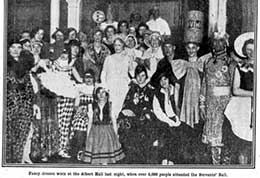11th Jan 2017 5:00pm-6:30pm
M2, Grand Parade

Helen Mears, 'Diasporic perspectives on cultural heritage: A Kachin case study'
Laur Kiik has recently emphasised the centrality of the notion of a Wunpawng Mungdan (‘Kachin country’) to Kachin political discourse. Similarly the very existence of a ‘Kachin State’ within the Union of Myanmar is seen to confer legitimacy on the active pursuit of a Kachin ethno-national mandate. However, despite the patriotic associations evoked by Wunpawng Mungdan, the reality is that migration and displacement mean that the number of Kachin people actually living in Kachin State might be at the lowest level in recent history. How, then, can Kachin ethno-nationalism be sustained through experiences of deterritorialization and reterritorialization, as many of its adherents become members of a rapidly increasing number of Kachin diaspora communities? Drawing on my current doctoral research with members of Kachin diaspora communities in the UK, US and Malaysia, I will argue for the central role of cultural heritage – both tangible and intangible – in articulating ideas of Kachin nationhood. Through print cultures, graphic design and popular music, I consider how members of Kachin diasporas are finding creative ways to construct and disseminate ‘imagined communities’ (Anderson 1983) and ‘alternate public spheres’ (Gilroy 1987) which support the political project back home. Helen Mears is a part-time AHRC-funded doctoral student and lecturer at the University of Brighton and Keeper of World Art at Royal Pavilion & Museums, Brighton & Hove. Interested in museum practice, diasporas, cultural heritage and global design forms, she recently co-curated the Brighton Museum & Art Gallery exhibition Fashion Cities Africa.
E-J Scott, 'The London perverts and homosexualists in fancy dress at Lady Malcolm’s Servants Balls, 1923 – 1939'
2017 marks the 50 year anniversary of the partial decriminalisation of homosexuality in England and Wales. Relying on newspaper archives and police reports, this paper examines the queer activity evident at London’s biggest annual working class party, 50 years before this decriminalisation. The research that informs it was made possible by the Heritage Lottery Funding of DUCKIE: purveyors of working class entertainment and was manifested in a performative heritage re-enactment event at the Bishopsgate Institute in July, 2016.
It has been revealed that Lady Malcolm’s Servants' Balls, 1923 – 1938, provided London’s domestic workers with an annual evening of affordable entertainment and social engagement, growing in popularity to the point where they repeatedly sold out 4,500 tickets at the Royal Albert Hall. Although Lady Malcolm attended the balls wearing highly fashionable haute couture, she set a more accessible fancy dress code for the lower working class servants. The homemade costumes were used by the guests to comment on their working conditions and their employer’s wealth and to display sexual and gender diversity. The balls became notorious for their prominent place on London’s interwar queer scene, attracting working class gay men, cross-dressers and trans revellers. This paper will retrace the interplay between authority, the carnival, London’s modernity and the wearing of fancy dress that led to the public queering of the Royal Albert Hall.
E-J Scott completed his BA History of Fashion & Dress and MA History of Design & Material Culture at the University of Brighton. He is Curator, Researcher & Archivist for DUCKIE, and his current project, the Museum of Transology, is open at the Fashion Space Gallery at the London College of Fashion from January 20 – April 22, 2017.
There will be an accompanying exhibition, curated by E-J Scott, in the corridor by G4, Grand Parade
The Arts and Humanities Research Forum is a series of fortnightly research presentations by research students and staff. The forum is cross-disciplinary and provides a regular facilitative opportunity for researchers to test and articulate research designs, explore methodological approaches and frameworks and debate theory/practice relationships in their studies. All are welcome to attend.